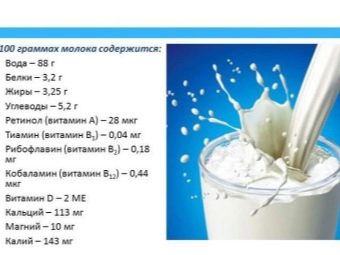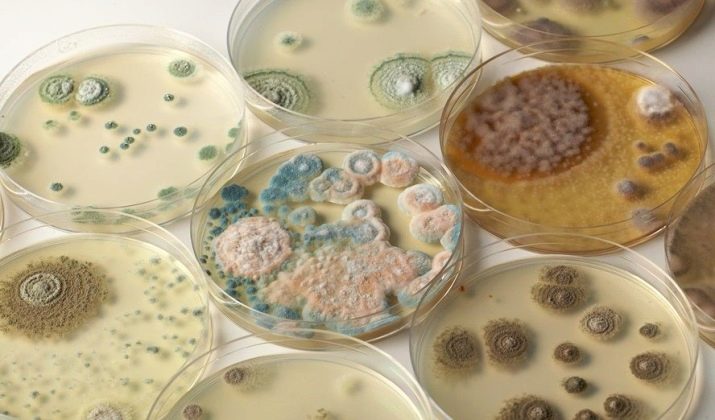Milk during pregnancy: benefits and harms, recommendations for use

During pregnancy, the menu should be varied. The inclusion of dairy products helps to diversify the diet of the expectant mother. This article will tell you more about the benefits and harms of milk, as well as recommendations for its use for expectant mothers.

Beneficial features
Milk in its composition contains many useful components. The nutrients contained in dairy products saturate the body of the expectant mother with energy. So, milk contains:
- water;
- proteins;
- milk sugar;
- lipids;
- riboflavin;
- vitamin C;
- retinol;
- a nicotinic acid;
- thiamine;
- choline.


The dairy product also contains mineral compounds:
- sodium;
- sulfur;
- iron;
- chlorine;
- phosphorus;
- magnesium;
- potassium;
- calcium.
The benefits of these minerals for the body of the expectant mother is that they have a beneficial effect on the functioning of the digestive system. So, in the composition of milk, components were found that can reduce the secretion of gastric juice. These substances can also coat the walls of the stomach, which reduces the risk of damage due to hydrochloric acid. The more of this acid is contained in the stomach, the higher the chance of developing dyspeptic symptoms. One of them is the appearance of heartburn. This unpleasant symptom often appears in the early stages of pregnancy.

Even one glass of milk helps many pregnant women get rid of this clinical sign. Symptoms of dyspepsia appear during pregnancy due to hormonal changes in the body of the expectant mother. The concentration of hormones in the blood in the first trimester of pregnancy is constantly changing, which leads to the appearance of very specific symptoms. Many women note that milk helped them cope with heartburn during pregnancy.
Milk contains fatty components that help reduce acidity in the stomach, which leads to the cessation of heartburn. Dairy products contain proteins. These components are needed not only by the body of the future mother herself, but also by all the cells of her baby's body. In the early stages of pregnancy, the baby's internal organs begin to form. If too little protein enters the baby's bloodstream, this can lead to the appearance of various disorders. Such specific changes can provoke the development of pathologies of intrauterine development.

Milk is also rich in specific fats. Fatty components, getting into the body, are quickly absorbed and contribute to saturation. It is no coincidence that many expectant mothers note that after drinking milk or a dish prepared from it, they feel full for a long time. Dairy products are rich in a very important mineral - calcium. This mineral compound is necessary for the fetus during the laying of its musculoskeletal system.
If, during the period of bone formation in a child, his mother consumes an insufficient amount of foods enriched with calcium and does not take multivitamin complexes, this can provoke the formation of dangerous pathologies in the crumbs.
In order to reduce the risk of developing such intrauterine defects, doctors recommend expectant mothers to include dairy products in their diet.
Harm and contraindications
Dairy products can be harmful in some cases. The appearance of adverse symptoms is also largely due to some of the components present in the chemical composition of these products. For example, milk contains lactose (milk sugar). This substance, entering the body of a woman suffering from lactase deficiency, can provoke the appearance of adverse symptoms in her. Clinical manifestations of lactase deficiency include abdominal pain and loose stools after consumption of dairy products containing lactose.

High-fat dairy products also contain quite a lot of cholesterol. Entering in large quantities in the body of the expectant mother, this component can provoke the development of a pathological condition - hypercholesterolemia. Exceeding the level of cholesterol in the bloodstream of the expectant mother is dangerous for the development of a number of disorders in the baby, which is actively developing in the mother's womb. In order to reduce the risk of developing such pathologies, women should not consume full-fat milk during pregnancy.
Only fresh milk should be present on the table of a pregnant woman. The use of low-quality dairy products can be dangerous for the development of food poisoning. Such pathologies during pregnancy can lead to the development of various complications and even hospitalization.
It should be remembered that milk is a good nutrient medium for the growth of microorganisms.Pathogenic microbes, getting into dairy products, can multiply in them, and subsequently become the cause of infection. In order to reduce the risk of developing adverse symptoms, doctors recommend expectant mothers to carefully monitor the quality of milk.

It is not worth consuming dairy products that have not undergone preliminary heat treatment. The quality of dairy products plays an important role. Poor-quality products can be dangerous, as various chemicals may be present in them. So, in low-quality milk there can be radionuclides and even antibiotics. Once in the body, they can provoke the development of extremely dangerous pathologies. Note that low-quality dairy products may even contain toxic substances.
Unfavorable clinical signs of pathologies that are caused by these components appear when they accumulate in the bloodstream.
Important medical restrictions on the use of milk are the presence of allergies and individual intolerance. Also, women who suffer from severe kidney and liver diseases should not drink milk.


Expectant mothers should carefully monitor their own well-being. Against the background of the use of dairy products, it is necessary to evaluate your general condition. So, if after a couple of hours from the moment of consuming any dairy product, heaviness or bloating appeared in the stomach, then in this case, the pregnant woman should temporarily limit her intake and be sure to consult her doctor. An upset stool after drinking milk is another symptom that should alert.If this clinical sign has appeared, then in this case you should also consult a doctor to determine the latent lactase deficiency.

Which milk is better to choose?
Doctors say that you can drink milk not only at the beginning of pregnancy, but also in the 2nd-3rd trimester. However, at the same time, it is imperative to monitor the amount of dairy product consumed, not exceeding the recommended dosages of its use. Expectant mothers with chronic pathologies of the gastrointestinal tract should always consult with a therapist or gastroenterologist before including dairy products in their menu. The doctor will assess your well-being and give recommendations on whether it is possible to consume certain dairy products.
Expectant mothers often have a question about which dairy products they should consume. You can drink not only cow's milk, but also goat's. It contains less milk sugar, which means that the risk of adverse symptoms in the stomach after eating it is significantly lower.
Doctors recommend choosing such milk for women who are prone to developing food allergies.

Goat milk is rich in components that help normalize the production of gastric secretions. It is no coincidence that this dairy product is recommended to be included in your diet for women suffering from inflammatory diseases of the stomach. The active components contained in goat's milk contribute to the normalization of the work of gastric cells, which leads to a change in secretion. So, in women who consume products made from goat's milk, the risk of developing heartburn and other dyspeptic symptoms is significantly reduced.
Goat milk contains quite a lot of lipids, which leads to a feeling of satiety after eating this product. The fraction of such fats is finely dispersed. This means that such fats are well absorbed into the blood without causing disturbances in the functioning of the organs of the gastrointestinal tract. That is why such dairy products are much less likely to cause the development of uncomfortable symptoms of flatulence.
Expectant mothers are not only useful for goat milk itself, but also for fermented milk products prepared from it. They are especially useful for women suffering from gastritis and chronic intestinal pathologies.

These fermented milk products are rich in special bifidobacteria - beneficial microbes that help improve digestion. The use of such products helps to normalize bowel function, which means it is the prevention of constipation, a common problem that usually develops in late pregnancy.

Recommendations for use
To reduce the risk of adverse symptoms after eating dairy products, doctors recommend expectant mothers to pay attention to the following tips.
- Drinking milk in large quantities is not worth it. In order to fill the body with the minerals it needs, contained in milk, it is enough to drink it in the amount of ½ liter per day. At the same time, you should carefully monitor your own well-being. If any adverse symptoms appear, the use of dairy products should be abandoned and be sure to see a doctor.
- It is better for expectant mothers who are overweight to buy milk and dairy products that have a low fat content. Such dairy products are also suitable for women who have had high blood cholesterol levels during pregnancy.
- Avoid dairy products right before bed. They contain components that have a diuretic effect. In order to reduce the load on the kidneys at night, it is better to drink milk a couple of hours before bedtime.
- Do not drink too cold milk. The use of such a drink can provoke the development of tonsillitis and pharyngitis.


On the benefits of goat's milk during pregnancy, see the following video.

















